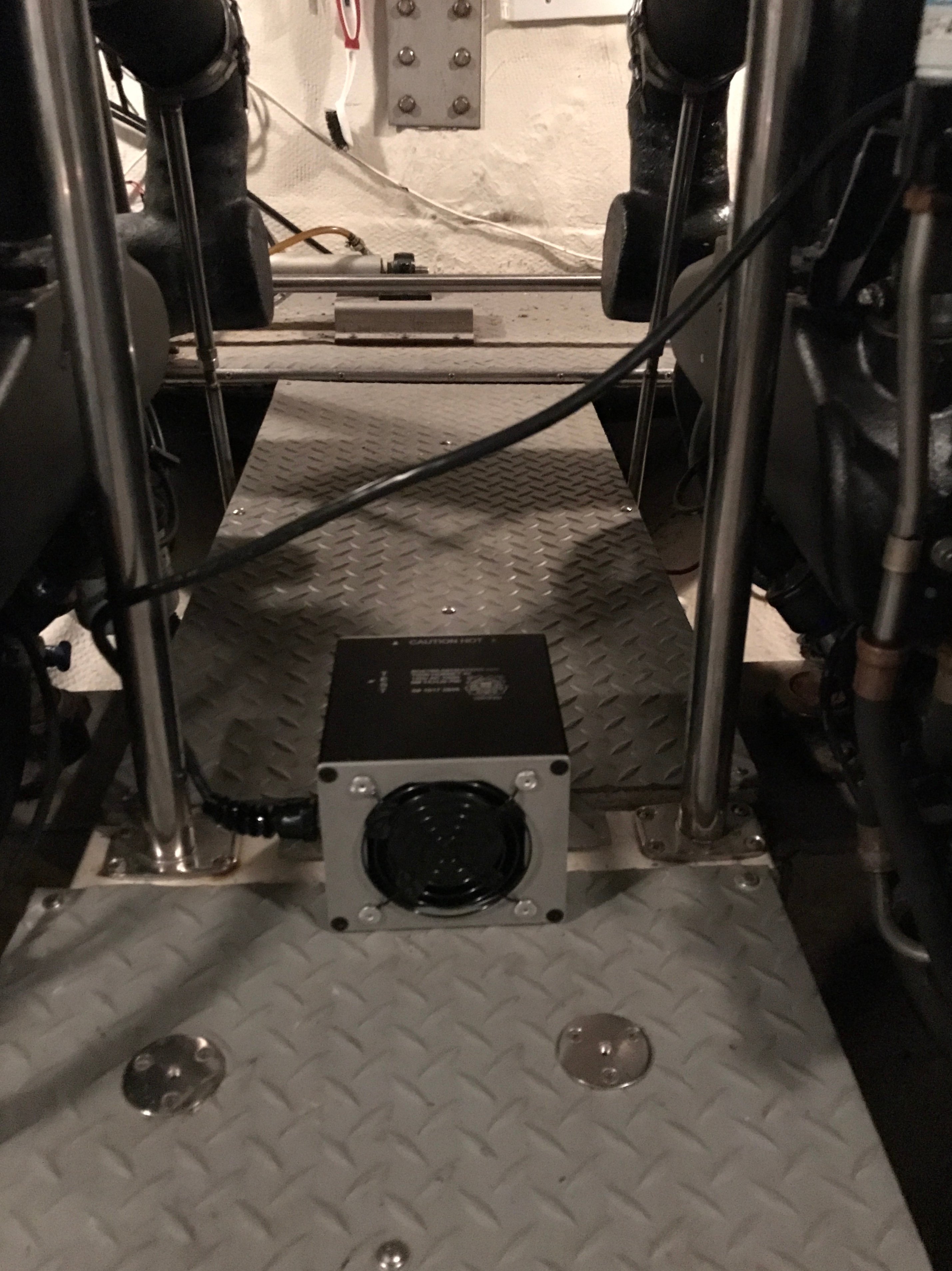November 14, 2018 by Boat Planet
The war on winter is here. Whether you live aboard your boat or just want to extend your boating season, an electric heater can help warm the interior of your boat in cold weather. But you need to know the potential hazards that come with using an electric heater on board, including the possibility of starting a fire. Here is a look at what you can do to stay safe while using an electric heater on your boat.

Benefits of an Electric Boat Heater
Electric boat heaters can be used in the cabin to warm the living space or in the engine compartment to keep the engine warm and dry. Just make sure to get the right one for the job, as cabin heaters and engine compartment heaters (also called bilge heaters) have different uses and features. You do not need your cabin heater to be waterproof inside and out!
Quality engine compartment heaters like those from Xtreme Heaters and BoatSafe Heaters include features that make them safe for the marine environment. If you have a gas-powered boat, look for a heater with ignition protection, so there are no sparks to ignite fumes on startup. A double failsafe design will include an internal thermostat that prevents the unit from overheating and shuts down if the thermostat itself fails. Here are some heaters we recommend that are specifically designed to be used in boat engine compartments:
Bilge heaters are a great option if you are worried about freeze damage from water trapped inside the engine block. They also keep the engine compartment and battery dry and eliminate condensation that can cause mold or mildew. Pictured below is the Twin Hornet 700W Bilge Heater.

Even if you purchase a bilge heater you should still winterize your boat, especially any components with water lines that can freeze up. Winterizing the engine is also a good idea in case there is a power outage and the bilge heater cannot do its all-important job.
Cons of an Electric Boat Heater
Speaking of electricity, the downside with electric boat heaters is their high power demand. Electric heaters draw serious amps that can quickly run down a boat battery. So, ensure there is a power supply recharging the battery if you are using an electric boat heater.
The heavy load of an electric heater can also expose electrical system problems in your boat. Boats with incorrectly sized wires, inferior parts, or faults caused by improper installation or usage can be overloaded, causing damage and possibly even starting a fire.
Another potential hazard of electric boat heaters is when the unit itself catches fire or comes in contact with something flammable. This can happen if the heater falls over, maybe due to a wave. A boat fire can spread quickly and endanger other boats and boaters if it happens at a marina.
How to Safely Use Boat Heaters
In spite of the hazards mentioned above, lots of boaters use electric heaters without harm every season. How? All it takes is some safety precautions and common sense.
- Use electric heaters with a UL label, meaning they have undergone product testing for safety.
- Choose an electric heater that is low profile, cool to the touch and will not tip over easily.
- Keep anything that can burn at least three feet away from the heater.
- Put the heater on a flat, hard surface away from areas of high traffic.
- Do not plug an electric heater into an extension cord and do not plug other devices into the same outlet as the heater.
- Do not use more than one electric heater on board at a time, or you could overload your system.
- If you are hooked up to shore power, inspect your shore power cord for faults before using an electric heater.
- Turn off the electric heater when leaving the cabin or the boat. DO NOT leave a running boat heater unattended.
Following these guidelines will help you safely use an electric boat heater. But, in a worst-case scenario, you should also know how to put out a boat fire.
An Alternative to Electric Heaters
It can be hard to beat the affordability and ease of an electric boat heater, but there are other options. Some of the most popular alternatives to electric boat heaters include:
- Oil-filled heaters – Also called heated stoves, these units burn diesel, kerosene or propane to provide heat.
- Forced-air heaters – Like the one in your house, with a central heater and ducts that deliver the warmed air.
- Hydronic heaters – Heated fluid runs through tubing to radiators or fan units throughout the boat.
Which type of boat heater works best for you depends on the size and layout of your boat, where and how you plan to do your winter boating and, of course, your budget. It is a wise idea to consult your boat dealer or manufacturer before making any purchases or installations.
What has been your experience with using an electric boat heater, or another type of boat heater, and what precautions do you follow? Let us know in the comments section below, and do not be afraid to give a boat heater a try. Winter boating can be a wonderfully calming and magical escape.